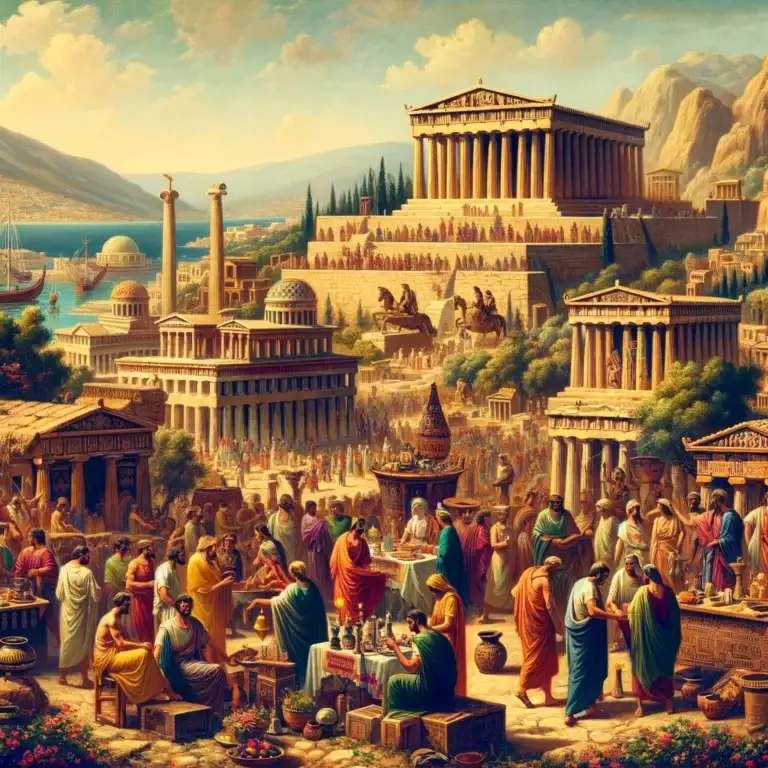Ancient Greece

Table of Contents
Ancient Greek Civilization
Ancient Greece, from the 8th century BCE to the 4th century BCE, was a civilization in the Mediterranean region. It was known for its immense contributions to philosophy, democracy, literature, and the arts. Notable city-states such as Athens, Sparta, and Corinth flourished, each with distinct social and political systems.
Key figures like Socrates, Plato, and Aristotle laid the groundwork for Western philosophy, while playwrights like Sophocles and Euripides produced enduring theatrical masterpieces. The Greeks also excelled in mathematics, astronomy, and architecture, as evidenced by the Parthenon and other iconic structures.
Their legacy extends to the principles of democracy and the Olympic Games. Ancient Greece’s cultural and intellectual achievements continue to influence modern thought and society despite internal conflicts and external threats.
The History of Ancient Greece
Ancient Greece, located on the eastern Mediterranean coast, emerged around the 8th century BCE and is considered the birthplace of Western civilization, laying the foundations for democracy, philosophy, literature, and art.
The civilization was comprised of city-states known as polis, each with its own government, laws, and customs. Prominent city-states included Athens, Sparta, Corinth, and Thebes.
The Persian Wars (490–479 BCE) were a series of conflicts between Greece and the Persian Empire, culminating in Greek victories at the battles of Marathon, Thermopylae, Salamis, and Plataea. These victories preserved Greek independence and are celebrated as pivotal moments in Greek history.
The Golden Age of Athens (5th century BCE) was marked by a flourishing of art, architecture, philosophy, and drama. It was during this period that Athens became a center of intellectual and cultural achievement, producing figures like Pericles, Socrates, Plato, and Aristotle.
The Peloponnesian War (431–404 BCE) was a protracted conflict between Athens and Sparta, leading to the eventual decline of Athenian power and the rise of Sparta as the dominant Greek city-state.
Greek mythology, a collection of stories about gods, heroes, and mythical creatures, played a significant role in shaping Greek culture and religion. The Olympian gods, including Zeus, Hera, Athena, and Apollo, were worshipped in temples and festivals throughout Greece.
The Olympic Games, held every four years in Olympia beginning in 776 BCE, were a major religious and athletic event in ancient Greece. Competitors from various Greek city-states participated in events such as running, wrestling, boxing, and chariot racing.
Greek philosophy emerged in the 6th century BCE, with figures like Thales, Pythagoras, and Heraclitus seeking to understand the nature of the universe, morality, and the human condition. Socrates, Plato, and Aristotle further developed philosophical thought, influencing Western philosophy for centuries to come.
Greek architecture is renowned for its innovation and beauty, characterized by features such as the use of marble, columns (Doric, Ionic, and Corinthian), and the development of architectural elements like the temple, theater, and agora.
Alexander the Great, king of Macedonia, expanded the Greek empire to its greatest extent during the 4th century BCE, conquering vast territories from Greece to Egypt and Persia. His conquests spread Greek culture, known as Hellenism, throughout the ancient world.
Related Links
Ancient Mesopotamia
The Middle Ages
Treaty of Rome
Ancient Rome